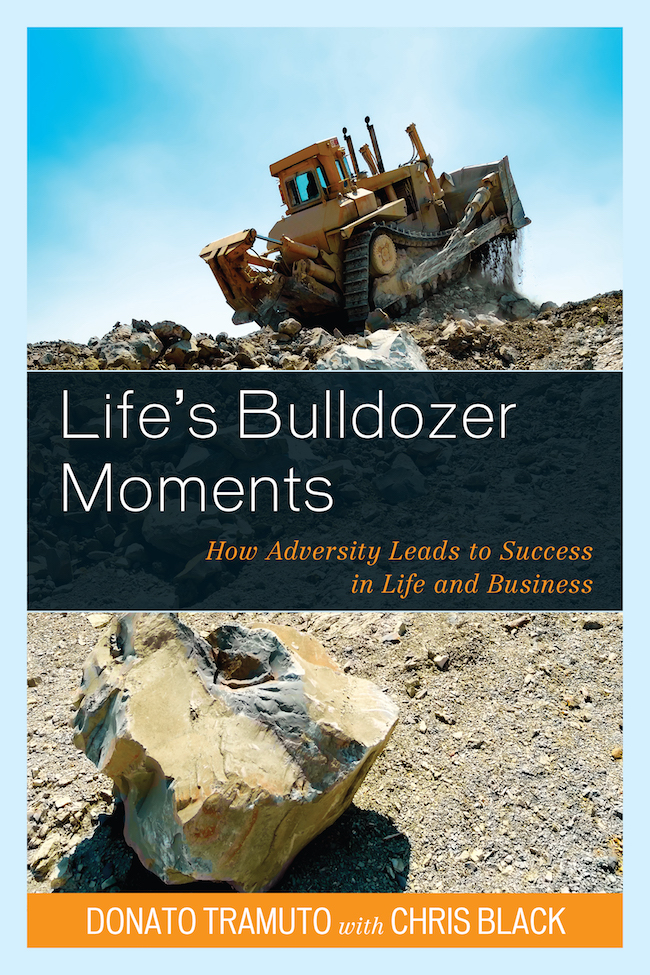Nashville Post Magazine
Excerpt reposted from the Nashville Post Magazine
The quotable Mark Twain is reputed to have said that the two most important days in your life are the day you are born and the day you find out why. To me, nothing is more important than finding the “why” of your life, your purpose for being, the motivation that gets you out of bed in the morning and propels you through each day. Your “why” is your passion, your very cause for being.
 I found my “why” as a boy struggling with a disability, reeling from the loss of much loved relatives, and battling the oppression of low expectations for me and my life. By focusing my career and philanthropic efforts on making a difference in health care, sparing others the pain I experienced when my sister-in-law died and when I lost my hearing in my left ear for the second time, and by trying to make the world a better place, my life has been infused with energy and purpose.
I found my “why” as a boy struggling with a disability, reeling from the loss of much loved relatives, and battling the oppression of low expectations for me and my life. By focusing my career and philanthropic efforts on making a difference in health care, sparing others the pain I experienced when my sister-in-law died and when I lost my hearing in my left ear for the second time, and by trying to make the world a better place, my life has been infused with energy and purpose.
Confucius said choose a job you love, and you will never have to work a day in your life. There are many fortunate people who find the perfect combination of career and talent and will honestly say that they would do their jobs even if they were not compensated because they so love what they do. This is an alien concept for too many people who view their jobs as a source of drudgery or duty. In an ideal world, everyone would work at a job that brings happiness and fulfillment. We spend most of our lives working. The American Time Use Survey conducted by the Bureau of Labor Statistics shows that the typical American spends more time working on an average day, 8.9 hours, then anything else, even sleeping, 7.7 hours. So if we are going to spend most of our time working, why not do something that makes you happy and if you are unable to find the job that makes your heart sing, why not just make the best of it?
This may seem a peculiar way to start a chapter on company culture but I am convinced that the two concepts; building a company culture and finding your “why” or, as I prefer, your passion in life, are linked. The “why” of business sits at the very core of culture. If you get the culture right, everything else will fall into place. The “why” for a company can be answered in many ways. My friend Bill Novelli, the former Chief Executive Officer for AARP who is now a professor at the McDonough School of Business at Georgetown University, describes culture as “the way we do things around here.” A successful business needs to provide a service or solve a challenge better than others. A company needs to have a specific purpose for being in existence whether it is providing excellent plumbing services to a community or manufacturing a cell phone with better options than the last generation of phones. A successful business needs a market and needs to respond to the marketplace in a creative and sustainable manner.
The “why” of a company is about much more than money. Money is a goal but not the only goal and it can be a short sighted goal if the pursuit of more money becomes the only purpose in the end in itself. While making money is the reason for commerce, commerce also must meet the greater purpose of meeting consumer needs and demands. In fact, if you do not meet the needs and desires of the market, you will never make a profit. The business will fail. So purpose must come first. Identifying the “why” is the first step towards building a coherent company culture. To quote the great business guru Peter Drucker, culture eats strategy for lunch every day. Another brilliant business consultant, Jim Collins, says “culture is strategy.” To me, culture is the soul of a company. As someone who studied for the priesthood, the soul to me is the very essence of being. Nothing is more important.
This is true in other pursuits as well. Think about presidential campaigns. The cleverest strategist and most wily tactician cannot win if the candidate is ineffective and lacks a compelling message that resonates with a majority of voters. To win a national campaign, a candidate needs to be able to articulate purpose and vision and convince a majority that he or she is on their side and will serve their interests. A candidate who is simply hyper-ambitious or overwhelmingly narcissistic and has no platform to sell to voters will lose regardless of the quality of his or her staff. Like business, a candidate needs to have a soul.
Too many people in business focus on the specifics of transactional change or the elements of a turnaround and only deal with the dynamics of the business, ignoring what is really the most important element, the people. Nothing happens without people and at the end of the day, business is about people. My associates and colleagues are often surprised that I maintain lifelong relationships with people, long after we worked together and parted ways. Not too long ago, I was warmly greeted by a woman while walking down the street in Ogunquit. I did not recognize her but she greeted me by name and flashed a big bright smile. I stopped to greet her and asked her to remind me of how we knew one another. She said I had fired her from UnitedHealth many many years earlier. I started to apologize but she stopped me and assured me that letting her go at that point in her life was a good thing for her. Moreover, she recalled that I treated her with dignity and respect. Her talents and skills no longer fit into the evolving culture of my division, but all those years later, she not only recognized me on the street but remembered me fondly.
Every time I had to fire someone, I made certain that I treated the individual with courtesy, respect and tried to make certain the employee was being transitioned out with enough time and money to ease the jolt that losing a job causes everyone. Providing severance pay and allowing a decent period of notice are essential. Yes, those two things may cost a company slightly more money but the true bottom line is enhanced by helping that employee leave as kindly as possible. There have been many times when a person who parted ways with me at a company wound up back on my radar screen as a client, associate, or partner in another venture. Burning bridges may make sense in war but it never makes sense in business.
This is a huge lesson for corporate America. Large companies can easily lose touch with their roots and humanity. Too many executives have training in business, the sort of approach taught in business schools, but they lack in emotional quotient. They can make tough decisions but do not know how to make those decisions in a way that minimizes the trauma and respects the integrity of the employee. As a small start-up becomes successful and scales into something much larger than ever envisioned by the founder, the personnel process becomes ruled by manuals and processes that can overlook the individuality and particular needs of individuals. Everyone is different. Respecting that difference and making it part of the corporate culture pays off. Forgetting that every employee is a person with hopes, aspirations and ambitions and treating the people who helped create the success of the company as cast offs when they no longer fit in with a culture is simply stupid and shortsighted. You do not get a second chance when it comes to people. If you hurt someone or violate her rights or treat her like a commodity rather than a person, that person will never forget the transgression, will become angry, and will nurse a grudge forever.
I remember when we made an acquisition some years ago and expanded the responsibilities of one of the executives, a truly brilliant man. Yet as the years passed, he repeatedly dropped the ball on important issues and did not move the technology forward in the way we had agreed. I finally had to tell him that I had lost confidence in him. He told me that he respected me so much that if I have lost confidence in him, then he would immediately look for another position. He was a start-up person, an entrepreneur in the purest sense, not someone who thrived in a bigger company where the scale dramatically changed. A few years later, I ended up selling him a part of the company that needed his particular skills. Our relationship survived the turmoil because I always treated him with respect, dignity and candor. I had never lost respect for him or confidence in his intellect.
[…]
When hiring a new employee or meeting an employee for the first time, many seemed to be shocked that I set aside a significant chunk of time, long enough to have a lengthy and penetrating conversation. Drive-by interviews that just checked the box waste time. I want to know everything about the person and that takes time. I often say that I go back to the day they were born. One-on-one interviews are now standard in business but too often CEOs view them as a perfunctory exercise and do not even try to conduct a deep investigation of the employee. I want to know how and where the employee grew up, how he or she interacts with parents and siblings, what their goals and ambitions are, and even what they read. I am as interested in their failures as their successes because I am convinced people only learn if they stumble and make mistakes. People who never take a wrong step, who never ever fail, are not destined for greatness. In my view, success is a product of setback and failure so long as the individual embraces the failure in a positive way and learns a lesson that provides critical guidance in the future.
I was interviewing a highly qualified 41-year-old man for an executive position not too long ago and asked him what business books he read. He told me that he no longer read business books. He apparently felt he had learned all that was necessary. This man came highly recommended and had an impressive resume but I did not hire him. I do not want someone in my organization who has stopped learning and striving to learn more. It is like that high school football star who reaches the pinnacle of achievement at age 17. As far as I am concerned, when you are through with growing and developing, you are through. Business is just like any other profession. It is vital to keep on top of trends and developments and be open to new ways of thinking and new approaches. Physicians, lawyers and other professionals are required to keep up with advances and changes in their fields. Business is no different. If a business leader cannot lead himself in terms of constant self-improvement, why would he be entrusted to lead others?
One hundred percent of all proceeds from the sale of the book, which may be purchased on amazon.com and barnesandnoble.com, will go to the Tramuto Foundation.
